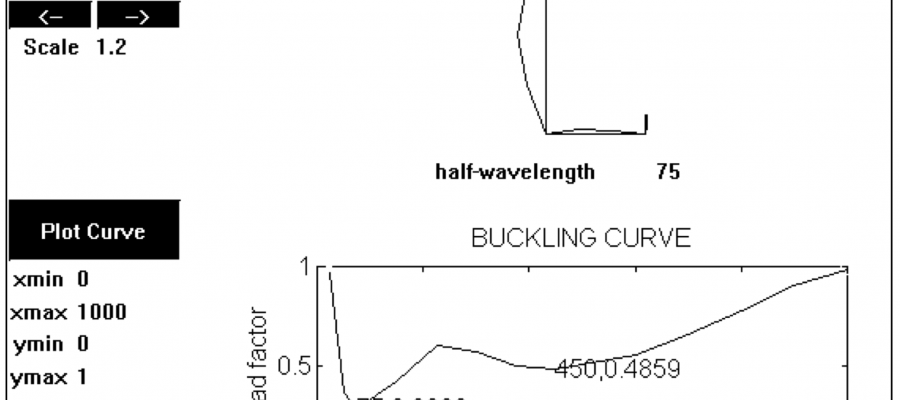The classic CUFSM 2.5 logo sat on many a desktop for a number of years in the 2000’s. As the logo indicates cross-section buckling is the heart of CUFSM’s application. The repository now provides CUFSM code from version 1.0 in 1997 through the latest version now 20+ years later.
In 1994 as Ben Schafer was working on his MS thesis he stumbled upon the remarkable program BFINST. BFINST was based on the work of Greg Hancock at the University of Sydney and was able to solve cross-section elastic buckling analysis in seconds – using the semi-analytical finite strip method. Inspired by the efficiency and power of the method Schafer educated himself on the classic work of Y.K. Cheung and others and coded his own version in Matlab so that he could run parametric studies without all of the text input/output and file handling that BFINST required at that time. Near the end of his Ph.D. Schafer added a rudimentary GUI to his code so that he could use it in teaching, and CUFSM was born.
While the GUI was never used much by Prof. Schafer as soon as the work was shared with others it became clear that the user base of both students and engineers would be much increased if the program had a comprehensive interface. This lead in 2001 to version 2.50 and in 2003 to version 2.6. These versions provide a full interface to the semi-analytical finite strip method. The original matlab code and the compiled GUI were all distributed as open source and CUFSM became a standard tool in cold-formed steel research and design for cross-section elastic buckling analysis, nearly worldwide.
While never updated frequently the software has included major advances as research dictated. First the constrained finite strip method in 2006/7 with version 3.12, then the generalization of boundary conditions in 2011 with version 4.03, and most recently the integration of tools for beam-column analysis in 2019. Today a former CUFSM user has created a python version of CUFSM which is also available. Professor Schafer is actively trying to determine the best long term path forward for CUFSM.
